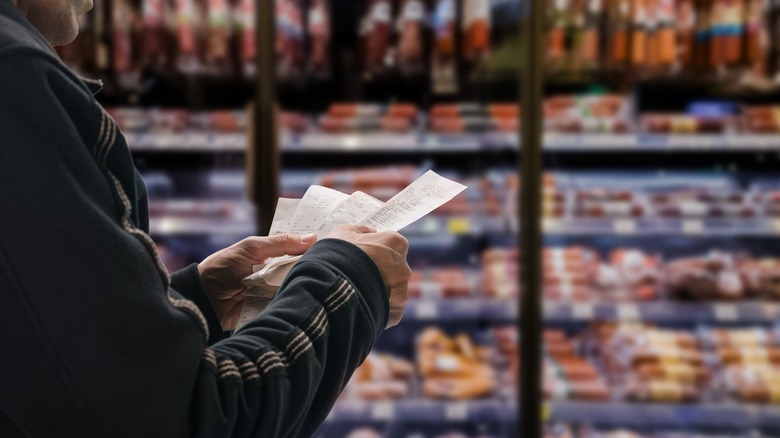The Few Foods Seeing Some Relief From Inflation Around The Globe
Relief may be on the way for consumers at the grocery store, at least on certain items. According to CNBC, global prices for some cooking oils, avocados, and coffee have begun to drop, potentially signaling a slow-down to the rampant inflation that has been wreaking havoc on food markets around the world.
The specific product drops are being impacted by a variety of factors, though they are part of a larger trend. According to Farm Policy News, food prices across the board dropped marginally in June for the third month straight, though the decreases were not substantial. Food prices hit a world record high point in March in the immediate aftermath of Russia's invasion of Ukraine on February 24, and despite the continuous decrease, Reuters shared that prices were still 23% higher than in 2021 by the end of June.
CNBC reports that cooking oil prices, including palm oil and the Ukrainian-supplied sunflower oil, have dropped in reaction to how high their prices had gone. Since prices had gotten so high and shortages were feared, more consumers found substitutes and the lower demand has brought down prices. Meanwhile, avocados have seen their prices drop because of a larger-than-expected crop from Peru this summer.
While some of the factors may be market specific, any sign that inflation may be slowing is beneficial as food insecurity becomes a bigger threat around the world, though BBC still warns that supply issues and increased fuel prices will prevent a return to pre-2022 prices.
Potential relief looming
Further financial relief could be coming in a matter of weeks. Russia and Ukraine signed an agreement on July 22, negotiated by Turkey and supported by the UN, to allow grain shipments to resume from both countries in the Black Sea. According to CNBC, millions of tons of wheat, barley, and corn are trapped in Ukraine. Silos in port cities like Odessa, which Russian ships have been blockading, are full, making it impossible for farmers to store newly harvested wheat this summer. In retaliation, many countries have sanctioned Russian exports, effectively cutting off 30% of the world's wheat and barley crops from the market and creating a shortage (per Carnegie Endowment for International Peace). The deal will allow Ukraine to ship its abundant agricultural products and for Russia to export its grains and fertilizers, both of which are critical to world food supplies. Both countries' shipments will be inspected by officials in Turkey to ensure weapons aren't being smuggled into the region, though the deal's implementation is already in doubt after Russia bombed Odessa one day after signing the agreement (per CNBC).
If it's upheld, the deal could not only alleviate the risks of famine in the Middle East and Africa, which the UN projected could become a critical issue if the war continues, but also lower the prices of food staples around the world. CNBC reported that the announcement of the deal between the two warring nations immediately saw wheat futures in Europe decrease by 5%.

